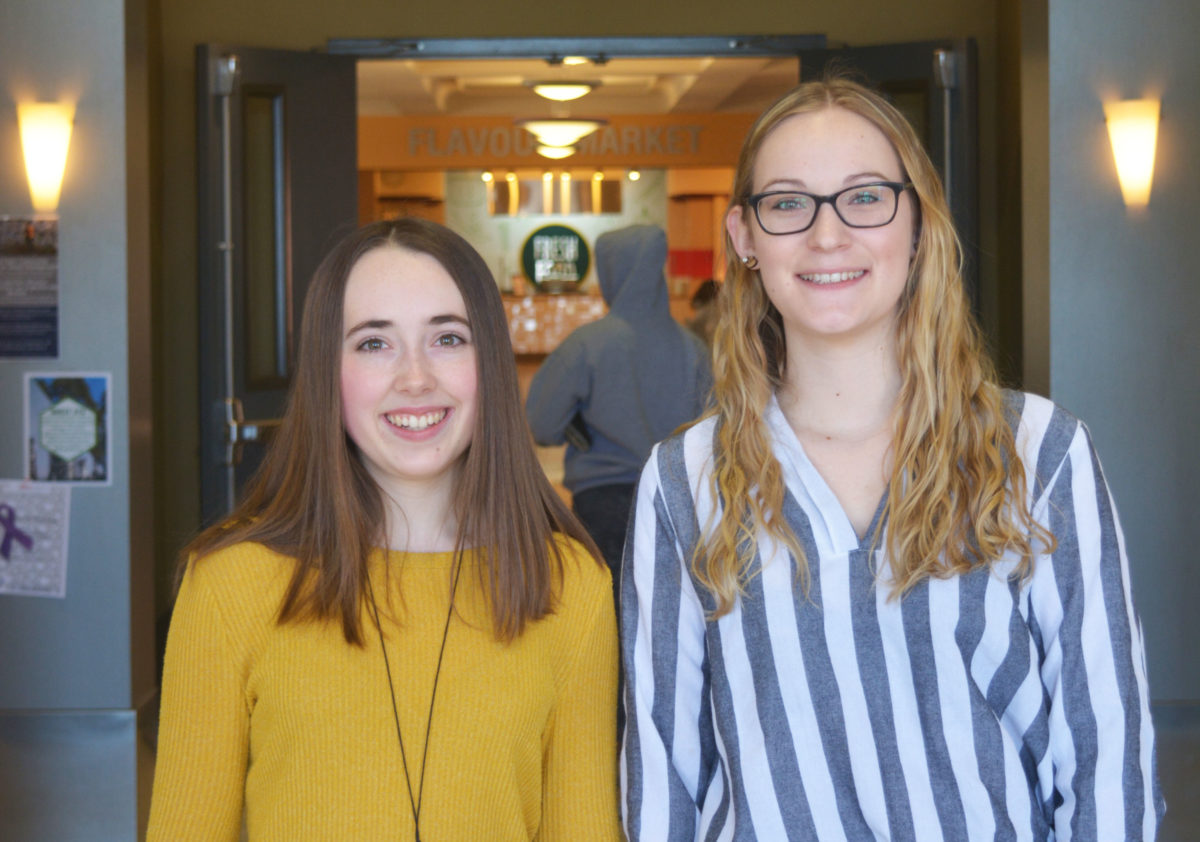About 30 pounds of food was wasted in the St. Thomas University meal hall each day between 11:30 a.m. and 2:30 p.m. from March 13 to 29, totalling 510 pounds of wasted food.
Students in the Environmental Praxis course at STU decided to weigh food waste to prove how much students throw away, as part of their Weigh Your Waste project. They hope to reduce food waste in meal hall by 50 per cent.
The class is working on several action projects such as zero-waste initiative programs and taking on another kitchen at the University of New Brunswick.
Grace Hickey, a first-year environment and society student and her classmates Emma Jean Griffin, Riley Sherwood, Cameron Miller, Phoenix Knight and Layne Olscamp chose this project because they’re interested in the industrial food system.
“We’re basically trying to figure out where most of the waste is coming from [and] how it is being produced. Kind of like a waste audit,” said Hickey.
They hope the project continues into next year too.

The group measured the food by placing scales under bins for students to dump their food. On average, they went through three bins during the three hours.
The most waste they measured after lunch was 33 pounds.
Griffin, a second-year international relations student, thinks the buffet setup contributes to the waste, as students pay for more food than they need.
“The buffet style is easy to do. We all do it. They load up their plates and they don’t like half the stuff they take … so they end up throwing it out,” she said. “They don’t need to be wasting as much as they do.”
Before the buffet system, students used to pay for the food they chose in STU’s meal hall.
The students hope to speak with the President’s Advisory Committee about the old system and see if it was less wasteful than the current buffet style, which was implemented in 2015.
They also wish the meal hall would compost food in the future. They’re hoping their research will influence the system to make it less wasteful and encourage individual behaviour change.
In addition to weighing waste, the group asked students to sign a petition to reduce the amount of waste they produce while eating. So far they have 100 signatures.
Hickey hopes their class project makes a change on campus.
“Our goal is to limit the waste altogether, but we’re hoping the project is continued on, and we can start to talk about how to manage the waste now that we’ve exposed what is happening,” said Hickey.
“Be mindful when you’re getting your plates at meal hall … but really there needs to be a systemic change behind it as well. There needs to be some action from the university to instil a less wasteful system.”
With files from Haley Stairs

